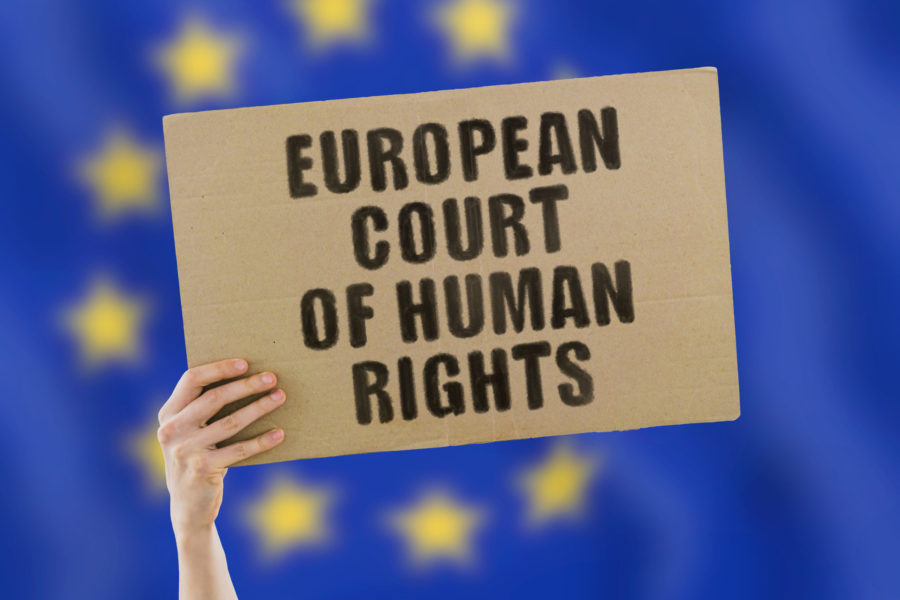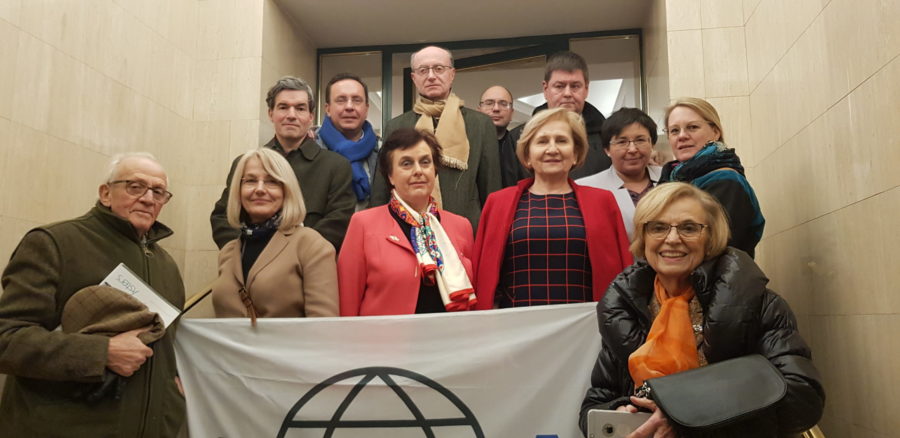
All of us have been facing an unprecedented situation happening nowadays all over the world. Covid -19 pandemic affects our professional and private life; our thoughts and doings are directed to take care of our families and loved ones. A number of international organizations, bars and law societies have responded this extraordinary circumstances by guidance and information provided for lawyers and law firms. Here we will publish information sent by our members and friends on actions and measures that affect lawyers and law firms. The page will be updated. Stay tuned.
International organizations
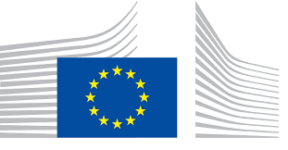 The European Commission issued a summary of actions in justice area on e-Justice Portal. It provides an overview of the measures taken within the European Union in relation to the COVID-19 pandemic, which affects judiciary, national authorities and legal practitioners, businesses and citizens. It is divided in three parts: civil law, criminal law and use of the digital tools by judiciary. read more…
The European Commission issued a summary of actions in justice area on e-Justice Portal. It provides an overview of the measures taken within the European Union in relation to the COVID-19 pandemic, which affects judiciary, national authorities and legal practitioners, businesses and citizens. It is divided in three parts: civil law, criminal law and use of the digital tools by judiciary. read more…
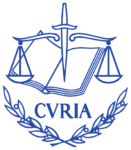 The Court of Justice of the European Union introduced several measures including suspension of hearings at least till May 25th. The Court encourages to use e-Curia tool. Application forms for opening accounts sent to the registry by email shall be accepted, exceptionally, on condition that they are accompanied by the necessary supporting documents, which are duly signed and scanned. read more…
The Court of Justice of the European Union introduced several measures including suspension of hearings at least till May 25th. The Court encourages to use e-Curia tool. Application forms for opening accounts sent to the registry by email shall be accepted, exceptionally, on condition that they are accompanied by the necessary supporting documents, which are duly signed and scanned. read more…
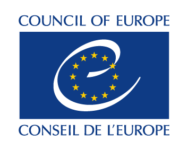 The Council of Europe – in the framework of its Commission for the Efficiency of Justice (CEPEJ) prepared a compilation of information from Member States on legal measures applied to respond Covid-19 crisis. read more…
The Council of Europe – in the framework of its Commission for the Efficiency of Justice (CEPEJ) prepared a compilation of information from Member States on legal measures applied to respond Covid-19 crisis. read more…
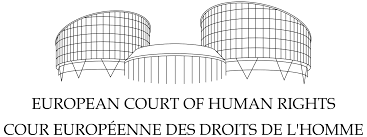 The European Court of Human Rights extended exceptional measures till June 15, including use of written procedure only and suspension of sending communication to the parties with exception of urgent cases. read more…
The European Court of Human Rights extended exceptional measures till June 15, including use of written procedure only and suspension of sending communication to the parties with exception of urgent cases. read more…
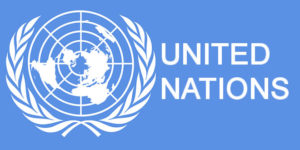 The United Nations UN Secretary General Antonio Guterres has issued a policy letter to G-20 member states on actions that should be undertaken against the Covid-19. He issued also seven remarks to the Security Council as well as a briefing to all member states on measures undertaken by the UN Secretariat including suspension of most travels and meetings. read more…
The United Nations UN Secretary General Antonio Guterres has issued a policy letter to G-20 member states on actions that should be undertaken against the Covid-19. He issued also seven remarks to the Security Council as well as a briefing to all member states on measures undertaken by the UN Secretariat including suspension of most travels and meetings. read more…
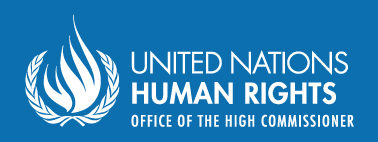 Diego García-Sayán UN Special Rapporteur on the independence of judges and lawyers outlined urgent steps to ensure justice systems are not paralysed by COVID-19. He issued seven key guidelines:
Diego García-Sayán UN Special Rapporteur on the independence of judges and lawyers outlined urgent steps to ensure justice systems are not paralysed by COVID-19. He issued seven key guidelines:
/1/ Increased support and guarantees for a functioning independent justice are urgent – in time of crisis functioning judiciary is more essential than ever.
/2/ Urgent decisions must be taken by an independent judicial system to prevent social exclusion and to guarantee protection of human rights.
/3/ Temporary reduction of demand on the justice systems – matters that may not be considered a priority, like prosecutions of minor offenses, civil or economic cases could be postponed.
/4/Orientation on protection of rights, in cases of serious crimes and cases of domestic violence.
/5/ Report of abuses – using current online technologies must be addressed and urgently implemented; lockdowns and “social distances” shouldn´t prevent the judicial system from acting and following due process guarantees.
/6/ Pre-trial detentions and similar measures should be applied only in extraordinary cases, where no other measures can be implemented.
/7/ In this context, judges, magistrates, public prosecutors and their staffs need to be put in conditions to perform their functions. They deserve special health attention in testing programs considering that they necessarily will be in contact with several individuals and groups.
Read the full seven guidelines here
Countries
 Letter from the office of our member Florence Achache (France) and letter from our member Christian Colombier (Lyon Bar)
Letter from the office of our member Florence Achache (France) and letter from our member Christian Colombier (Lyon Bar)
1) Paris Bar
The Bar Council has just written a vademecum which should be sent to all lawyers. It provides a wealth of useful information and answers some of your questions. An order should be taken very soon to extend all the time limits. Financial facilities are being put in place. Likewise measures to defer payment of contributions, social charges, VAT, possibilities of suspension of payment of rents.More information is available below for download
Vademecum COVID 19 Barreau Paris
2) Lyon Bar (extracts from the letter)
4. Regarding the decisions made by the law offices and public authorities, a few points may be underlined. The first COVID-19 related mail was sent on the Friday 13th march by the Bar’s Council to its members in LYON. It stated that hearings would take place as usual the following week, but that the protests which gathered lawyers at the time were suspended effective immediately. In addition, the Bar’s Council announced that it would be closed to general public until further notice.
During the weekend, we were updated of the meetings with Ministry of Justice, whom decided to put into action plans in order to maintain judicial activity limited to urgent matters, as it became clear that the containment of the population would most likely have to come into effect. On Sunday the 15th, we were informed that all non-extremely urgent cases would be postponed proprio motu by the Courts. However, on Monday morning 16th of march, it came to our attention that the Courthouse was completely closed. It was later known that day that several persons working there had been contaminated by COVID-19.
Accordingly, most law firms reacted accordingly by initiating teleworking and partial unemployment for firms’ employees.
5. To this day, all civil hearings have since been postponed, unless imperative reasons command to proceed with a case, such reasons being ruled by judges themselves beforehand. More precisely, most courthouse are closed, and the virtual network used by both lawyers and courts to process cases is shut down. Only urgent criminal procedures are still trialled, essentially when the freedom of defendants is at stake, along with domestic violence cases, which increased because of the containment.
Other measures may be cited such as:
– videoconferencing for prisoners instead of appearing in person during a hearing, in the meantime, prosecutors are asked to request incarceration only for serious offences and release have been eased;
– some hearings were even closed to the general public;
– Bailiffs, whose assistance is required in some matters are alternately on stand-by as their colleagues do not serve judicial documents for the time being;
– Bar’s council, which organizes free consultations to litigants, has organized phone consultations in order to maintain this service;
Given the lack of legal background, the Parliament passed a law creating a new concept of « sanitary state of emergency », allowing national and local authorities to take action on some particular matters such as prices control, sale of prescribed drugs, freedom of movement… In addition, and in order to avoid procedural issues, several ordinances were adopted regarding civil, criminal (as previously mentioned) and administrative laws. The ordinance relating to civil law was passed on the 25th of March. For the main part, it has suspended any procedural deadline, which should be came in very useful litigants who are not assisted by lawyers. Ongoing procedures where deadlines apply are also put to a standby (investigation measures in particular). This ordinance may apply to numerous cases regarding commercial rents as the absence of payment will not be able to provide ground to the lessor to obtain the termination of the commercial lease. Insolvency law has also been softened, for instance allowing companies which go bankrupt to report it within a more flexible delay. More controversially, administrative courts may rule cases dealing with deportation orders without any hearing. Those controversial provisions, along with others regarding criminal law, led the Bar Council of LYON to send an open letter to the Ministry of Justice on the 27th of March stating that it would not provide further designation of lawyers whenever it is required by law in order to protest against what is seen as detrimental to human rights.
6. On another matter, economic and financial as facts of the crisis are dealt with by the government by focusing on two sets of measures: partial unemployment and support to companies regarding cash management. Indeed, the Banque de France has estimated that unpaid invoices amount to around 13 billion euros at the moment. More than 1.6 million workers and 150.000 businesses applied to partial unemployment on the 28th of march, reaching more than 5 million workers and 450.000 businesses on the 6th of April, for an estimated cost of 8.5 billion euros. Moreover, loans amounting to more than 20 billion euros were asked by approximately 100.000 businesses. The Ministry of economy and finances, announced that state guarantees up to 300 billion euros worth of loans would be provided. The issue of nationalisation of major companies is arising now and then in the media but no measures have been announced yet regarding this matter, whereas smaller businesses may be granted premiums capped at 1.500€ via a state solidarity fund. Also, on the 13th of march, the public authorities announced that they would support companies by delaying the payment of some taxes (but not VAT). Many banks got in touch with their clients through emails in order to reassure them and assist them for the times to come, even if no binding measures were taken yet.
Finally, regarding the sanitary crisis, unprecedented measures in peacetime have come into force. The freedom of movement has been critically reduced, and limited to the core, until the 15th of April so far.
A decree of the 23rd march has listed a series of measures. The most symbolic imposes that one must, as soon as he or she leaves his or her accommodation, carry a statement issued on honour explaining the reasons of the move. The decree has established a restrictive list of the valid reasons as follows:
– Travel to the workplace, given that it cannot be postponed;
– Travel to purchase basic necessities for the household or one’s work;
– Travel to seek medical assistance which cannot be granted thanks to tele-consultation;
– The necessity to provide assistance to children or vulnerable relatives;
– Physical exercise, however limited to one hour per day and no further than a one kilometre radius around one’s accommodation;
– Necessity to report to a law enforcement (court supervision) or to a court;
– Necessity to accomplish a mission related to public interest and as required by public authorities.
So far, law enforcement officers have been reported to apply very strictly this measure in order to avoid public reunion and mass departure during holiday season. In addition, naval and aerial connections are suspended until 15th of April, and barely maintained for vital matters and matched with heavy sterilization binding procedures. Any gathering, no matter the motive, superior to 100 persons is prohibited, and all « non-essential » shops are closed, including schooling facilities, from kindergarten to faculties, except of medical staff children under 16 years old. Surgical masks have been requisitioned, and some people trying to take advantage of the supply shortage have already been arrested and are facing heavy sentences as their sale is forbidden. Hydroxychloroquine, which has caused a controversy in the last days has been allowed as a treatment for COVID-19 patients, and export restrictions for similar molecules are implemented.
In order to limit the contamination through medical staff, the validity of medical prescriptions has been temporarily extended
Furthermore, funeral rites are forbidden and burials fall under the above restrictions. To this day, the containment is supposed to end on the 15th of April but will be lifted only gradually.
Letter from Christian Colombier – Lyon Bar
 Information published by the German Federal Bar Council (Germany)
Information published by the German Federal Bar Council (Germany)
The below information and its enhancements may be found (in German) on BRAK website. The translation was made by use of mechanic context translator (language imperfections may appear).
Corona and tax measures
Lawyers can tax relief to the competent tax authorities for them to apply if they are economically affected by the corona virus. The BRAK has compiled all the important information for you here ►Information on tax measures to help companies affected by the corona virus (PDF). The BMF letter dated March 19, 2020 „Tax measures to take into account the effects of the corona virus ” can be found HERE. We have summarized a clear list of previously published statements by the federal and state governments here ► Information from the BMF and the finance ministries of the states regarding the Corona Virus (PDF).
Corona and a possible curfew
In the event of a possible „curfew”, BRAK has put together the most important questions and answers [►FAQ] for you. The statements made there of course also apply as long as „only” a ban on contact has been issued. The BRAK also has a sample for a ►PASSIERSCHEIN ready for you. Please understand that this is a precautionary sample. At this point in time, we cannot give a binding guarantee that the model will be considered sufficient for the block to be decided in your state, if applicable. However, we will continually adapt our information to the current circumstances.
To ►Overview regulations and decrees and general dispositions of Lands.
Professional legal information
Many colleagues wonder how they should behave in the event of illness or if quarantine measures are imposed. The law provides the answer: Section 53 (1) of the BRAO stipulates that a lawyer must provide representation if he is prevented from practicing his profession for more than a week or if he wants to move away from his law firm for more than a week /got to.
Colleagues, especially with law firms in particularly affected areas, should take precautions so that they can also work in quarantine if necessary. If available, it is advisable to carry necessary technical equipment such as a laptop, card reader etc. with you on a daily basis. It should also be checked in good time whether all desired or necessary access rights to the beA, including those for the substitution case, have been properly assigned. Information on how to assign rights can be found in the ►beA Newsletter.
For questions about the representative order the competent advises ►regional Bar Association.
In addition, we refer to the article by lawyer Martin W. Huff on professional questions at LTO: ►LINK
The Munich Chamber of Lawyers has published FAQs about Corona for lawyers: ►FAQs (PDF)
Corona and specialised training
Special training requirement : If, due to the corona crisis, a specialist lawyer is unable to attend a classic face-to-face event that is suitable for his purposes, there is now the option of attending online courses or webinars offered by numerous organizers . There are offers for text-oriented online courses, online lectures (live or for self-study) and interactive modules. With these formats, compulsory advanced training can be completed in all areas of the Specialist Lawyers’ Regulations, which take sufficient account of the requirements of § 15 FAO. Regardless of this, specialist lawyers can always do up to 5 hours of their training obligation through self-studymeet if a learning success control is carried out. For this purpose, the organizers regularly offer short tests that can be used to query what has been learned. Learning content is usually conveyed through webinars or written documents. Finally, there is the alternative to publish scientifically. Important to know: Even if a retrofit of the training in the following year does not heal a violation of the training obligation retrospectively, according to a decision of the BGH (decision of 05.05.2014, AnwZ (Brfg) 76/13) in justified exceptional cases – for example in the case an illness – the one-off „breach of duty” can be compensated by a correspondingly increased advanced training in the current year
Further information on § 15 FAO can be obtained from your regional chambers. The General Meeting of the Federal Chamber of Lawyers will deal with this topic in its next meeting for current reasons.
Corona and legislation
Corona requires very short-term changes to the law are necessary. The BRAK has offered the Federal Ministry of Justice and Consumer Protection support in this regard. The open letter from BRAK President RAuN Dr. Ulrich Wessels to Federal Minister of Justice Lambrecht can be found here: ►LINK. The BRAK repeated this offer with the ►Press release dated March 23, 2020 and at the same time asked the legislature to provide regulations that are set in motion due to the pandemic with a clear end date and thus to ensure that new parliamentary votes are taken and thus Checks are carried out.
The Federal Government has provided formulation guidance for ►drafting a law to mitigate the consequences of the Covid19 pandemic in civil, bankruptcy and criminal procedure law. With a ► letter from March 24, 2020 (PDF), BRAK President RAuN Dr. Ulrich Wessel’s comments on the draft were sent to the Federal Ministry of Justice.
Likewise, a ► Act to protect the population in an epidemic situation of national scope (BT-Drs. 19/18111 of March 24, 2020, PDF) was initiated , which the ► Federal Council (decision of March 27, 2020 , BR-Drs. 151/20, PDF) has since agreed. The much debated cell phone location was initially not included. After Health Minister Spahn indicated last week that he would like to discuss the topic again, President RAuN Dr. Ulrich Wessels sent a ►Letter (PDF) with comments to the Federal Minister of Justice on 30.30.2020 .
Corona and the judiciary
Many colleagues are wondering how to deal with upcoming court appointments. At the request of the lawyers, the BRAK campaigned for all lawyers and made an appeal to the judiciary : ►Press statement by BRAK v. 03/17/2020. The BRAK’s request has been discussed several times in the press. Prof. Dr. Hanns Prütting gives important information on the suspension of the procedure according to § 247 ZPO ► Attorney’s Journal .
►OVERVIEW Statements from the judiciary by Federal authorities
Corona and labor law and economic implications
The Federal Chamber of Lawyers approached the federal government, the federal states and banks and asked for quick and unbureaucratic liquidity protection for the legal profession . The associated press release can be found here: ►LINK
The Federal Ministry of Labor and Social Affairs has published ►FAQ on the effects of labor law. The Federal Employment Agency has also compiled the most important questions and answers in an ►overview.
Lawyer Marc-André Gimmy, specialist lawyer for labor law and chairman of the labor law committee of the Federal Chamber of Lawyers, gave an overview of labor law issues in a joint interview with attorney Nathalie Oberthür, chairman of the labor law committee of the German Bar Association : ►INTERVIEW
The federal government has adopted a package of measures to protect jobs and support companies. You can find information on the ” Protective shield for employees and companies ” here: ►LINK (PDF)
An ►ARTICLE on compensation from the state in quarantine and on the subject of short-time benefits was published in the lawyer’s journal .
The federal states have also reacted in the meantime. If the prerequisites are met, freelancers can also apply for so-called Corona emergency help , which means that lawyers have the option.
Possibly. You can request a deferral of social security contributions until March 26, 2020 : In the course of the parliamentary deliberations on the legal package for the Corona emergency aid, it should have been decided to give all companies affected by the Corona crisis the opportunity to have the social security contributions for the months March and April 2020 hours. The press has already reported on this, see e.g. ►FAZ or ►n-tv.
For a deferral of the contributions for the month of March , however, it is necessary that the companies concerned informally contact their respective health insurance companies by Thursday, March 26, 2020 at the latest, with reference to the emergency caused by the corona crisis and paragraph 76 of the Social Code Book IV who have to raise their social security contributions.
A deferral of contributions to the eased conditions is only possible after all other measures from the various aid packages and support measures of the Federal Government have been exhausted.
Corona und ALG II
You can find information on ALG II for the liberal professions in the ►ARTIKEL by Volker Gerloff in the lawyers’ journal .
Legal issues related to regulatory powers
Attorney Dr. Sigrid Wienhues, chairman of the administrative law committee of the Federal Chamber of Lawyers and specialist lawyer for administrative law, answered the SPIEGEL questions about official powers in the time of Corona . You can find the interview here: ►INTERVIEW . Miss Dr. Wienhues answered further questions about the Infection Protection Act in the podcast from detektor.fm: ►LINK
Different regulations in the federal states
In particular, there is no nationwide regulation regarding the closure of schools and day-care centers and with regard to the holding of events, but the states decide on their own measures. Please inform yourself on the website of your state government about the current state of affairs.
►OVERVIEW of regulations as well as decrees and general decrees of the federal states
The guidelines , which the federal and state governments have now jointly decided on, can be found in the press conference on March 16, 2020: ►VIDEO-Link
 Letter from the Law Society of Hong Kong
Letter from the Law Society of Hong Kong
The Law Society undertook several steps to assist lawyers and law firms to adapt their activity to the era of pandemic. You may download an English version of the letter.
(i) For adequate precautions to protect their staff and people attending their offices, law firms are referred to the Centre for Health Control for useful guidance on infection control measures.
(ii) It is important to ensure that clients’ interests are protected at all times. The management issues that may arise in the current public health situation vary from firm to firm depending on many factors such as the client base, type of work handled, money held in clients’ accounts, management of cheque books and accounts, number of clerks, time limits due, etc. Firms are reminded that should practitioners wish to work from home, depending on whether the physical offices of their law firms can still fulfil the supervision requirements under the relevant provisions in the Solicitors’ Practice Rules, they will need to consider closing the offices to the public if the statutory minimum supervision standards are not met.
(iii) In the event that law firms have decided to temporarily close their offices, the Law Society provides a facility via the members’ zone of our website to inform all members of any special arrangement regarding the opening hours and dates of law firms.
(iv) Practitioners have also been urged to be sympathetic to requests for reasonable extensions of time, subject to clients’ instructions, in these extraordinary circumstances.
(v) Law firms are reminded to prepare themselves for the possibility of infection or close contact with an infected person within their own staff, or a quarantine order being imposed under the Compulsory Quarantine of Certain Persons Arriving at Hong Kong Regulation Cap. 599C, or other measures taken by the Government following the COVID-19 infection. These possible scenarios will have major impact upon the operation of law firms.
(vi) Law firms are reminded to enquire from the Building Management what steps they will take to disinfect an office and how long that will take and how rapidly it can be completed after notification. For sole proprietors, it may be necessary to consider taking active steps to set up a „buddy system”, i.e. to set up a relationship with another firm so as to provide timely support to each other in the event that either firm is suddenly prevented from practising for some days. In such a fluid situation, we have to be well prepared with a contingency / business continuity plan that fits the needs of our own practices, ensuring that there are adequate arrangements in place to cope with difficulties that may arise.
The Law Society has also distributed an aide memoire to assist members to formulate a Disaster Recovery Plan to meet individual needs.
Owing to public health considerations, continuing professional development (“CPD”) courses have been suspended in February and March. To address the concern that practitioners may be left with fewer choices of CPD activities for compliance with the relevant statutory obligations due to the temporary suspension of courses, the Law Society will be implementing measures that will effectively allow members more time to complete their obligations.
The supply of surgical masks has been tight as the demand is so high. The Law Society’s Member Services Department has been trying hard to source surgical masks for members as a member benefit. We are very grateful to the kind referrals received from friends both locally and abroad who have been immensely helpful to us in our attempts to source supplies of surgical masks. Such is the power of mutual support and assistance within the Law Society’s well established global network of legal connections.
You may have been aware that there has been a general adjournment of court proceedings in Hong Kong since 29 January 2020 for the protection of the health of all court users. The Judiciary has been working out the resumption arrangements and it is expected that the general adjournment period will end from 23 March if public health situation permits.
Letter from the Law Society of Hong Kong
Notification on court proceedings
 Letter from Paolo Sguotti, member of the AEA-EAL Board (Padova – Italy)
Letter from Paolo Sguotti, member of the AEA-EAL Board (Padova – Italy)
As you mentioned, Coronavirus is having a huge impact on our professional and personal life. Unfortunately, in Italy there is a deadlock in Judicial activity and as a consequence law firm’s productivity is badly affected.
In specific to answer your questions, due to a decree issued by the Italian Prime Minister both civil and criminal court hearings have been suspended till the 15th of April and until further notice. Moreover, the fulfilment of legal civil and criminal acts has been suspended except for urgent business and proceedings.
The Coronavirus restrictions in order to avoid the virus’s spread allow the population to travel only to and from work or for essential needs such as medical care or grocery shopping. Consequently, almost all the scheduled meeting with clients have been suspended. Lots of law firm, like us, are working by Skype call and videoconference where possible.
In my Law firm smart working has been increased and my colleagues and I are taking work shifts in order not to be many people in the firm but only the essential work force. Moreover, employed workers have been encouraged to take annual leave. The Government is supporting employee with financial support such as the suspension of the house mortgage under certain condition, and 600 euros per month for some self-employed categories.
However, for some professional registered categories such as lawyers there is been no support put in place from the government so far. Lawyers hope the government will provide measures to support law firm soon, because in our sector there is been a negative financial consequence on our revenue.
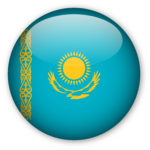 Letter from Leila Ramazanova (Almaty – Kazakhstan)
Letter from Leila Ramazanova (Almaty – Kazakhstan)
The below letter was sent in Russian and was translated by use of mechanic context translator (language imperfections may appear).
Almaty City College of Lawyers (hereinafter referred to as „AGCA”) the following is undertaken:
– AGCA lawyers are exempted from membership fee payment for one month;
– all lawyers are transferred to remote work;
– Offices do not work, duty is carried out through mobile communications and questions from the site;
– AGKA staff also works remotely;
– AGCA lawyers are officially allowed to move around Almaty.
Court proceedings:
– in civil cases, all proceedings were suspended with reference to Part 1 of Article 45 of the Code of Criminal Procedure of the Republic of Kazakhstan (no suitable article was found in the Code of Civil Procedure);
– in criminal cases, the main part is suspended, the petitions of the pre-trial investigation body to authorize the arrest / extension of the term of detention are considered, as well as criminal cases on which the deadlines for consideration only through the IMCC (remote participation using TrueConf and WhatsApp).
Bank loans – deferred payment for 3 months.
On labor issues – the opportunity for lawyers to suspend the benefit of 42,500 tenge (about 100 euros) per month.
On contracts – in each case, it is separately considered, it is necessary to obtain a certificate stating that force majeure took place.
 Information from Joanna Wisła – Płonka, National Bar of Attorneys-at-law (Poland)
Information from Joanna Wisła – Płonka, National Bar of Attorneys-at-law (Poland)
Courts so far have suspended proceedings officially to the end of March, but mostly there are informations from courts, that there will be no hearings until the end of April (except urgent matters f.e. arrest decision). Courts are closed for public, only in urgent matters parties and lawyers are allowed to enter to the building.
We are waiting for regulations, we are expecting that 2 months of cancelled hearings will result average in 3- 12 months of delay of the case (from personal experience, court hearing in middle size city in district court (I instance) in commercial proceedings planned on 8.04 and cancelled because of coronavirus will be proceeded on 5.08, it will be much longer in larger cities or courts )
Courts still proceed hearings in urgent matters such as f.e. detention decision in criminal cases, urgent decision in family cases f.e. regarding parental care, only in these urgent matters parties and lawyers are allowed to enter to the building. In the court buildings disinfectants are in common use.
Lawyers can only enter the court building in urgent matters for the time of hearing. You cannot personally file any documents in the court, the income of outside delivery is now restricted.
The absence of person tested positively for the virus in court hearing will be excused. If there would be information, that such person was involved in court hearings, all participants who also were present in the same court room or any other having direct contact, will be quarantined.
It is known that the number of detention on remand is decreasing and that visibility with external persons has been reduced (however, we talk about families of detained / convicted prisoners, not about issues related to the exercise of the right of defense. There have been information about the suspension of external employment of prisoners and what else) the need to extend access to hot water and cleaning products. It is also known that in some prisons, masks and overalls are sewn.
Everyone entering prisons has their body temperature measured. Criteria for the eligibility of prisoners for whom there is a risk of coronavirus infection (based on guidelines developed for people who meet certain criteria – who were in countries with or at risk of being infected) may have been developed. Sanitary inspection shall be informed of possible cases.
The Ministry of Justice is preparing draft regulations on the basis of which it will be possible to use the electronic surveillance system more widely than before for prisoners serving sentences that do not exceed 18 months in prison. A special break is also foreseen in the course of serving a sentence in connection with the epidemic threat (for a crime punishable by up to three years imprisonment). There is a significant extension of the videoconferencing system (to reduce the risk of personal contact).
All this is currently happening, but there is no hard data in the form of draft legislation or other official documents. Certainly in detention centers and penitentiary establishments with detention units – when it comes to contact with lawyers – it is still being implemented, but precautions are taken (contact through glass, hand sanitizing)
The Prison Service observes what is happening in connection with the functioning of the penitentiary sector in other countries with the epidemic (i.e. in Italy and Spain), and there the situation is very dynamic and from what is being written – it is difficult to talk about the effective functioning of the guarantee system resulting from EU directives (especially those regarding access to a lawyer).
Individual measures by Bars or Law firms
Very important is access to useful information regarding current situation in courts, available tools for on-line communication and even personal contact with members (especially in senior age) who may need help in every- day life matters during crisis.
Last but not least: lawyers are among the liberal professions who are immediately affected by the social distancing and safety measures taken by the authorities. The economic and financial impact of those measures will be felt soon. Therefore a last question concerns potential fiscal and economic measures or incentives taken or about to be taken by the authorities in your country to reduce the negative financial impact of the crisis on the sustainability of – amongst others – the law firms?
Other measures
Polish government has filed package of drafts of statutes called “anti-crisis shield” which shall be voted in Polish Parliament on Friday. It includes support measures for business (including lawyers). F.e. : coverage by the state of contributions to social insurance for three months – for micro-enterprises that employ up to 9 employees (this refers to contributions for all employees); and self-employed; monthly benefit in the amount of up to about 2,000 PLN – for those employed under a mandate or specific task contract and self-employed; the right to delay the payment of income tax advances for your employees by three months, the legal possibility for employer of a 20% reduction salary and working time for an employee, however, not less than half-time, the state will pay no more than 40 percent. average salary for three months, another option is an additional payment to the salary of employees who have reduced working time due to „economic downtime” – if the employer reduces the employee’s salary, but not less than to the minimum wage, the state will finance half of it together with insurance contributions social (the last two forms of assistance are conditioned by a decrease of income due to coronavirus).
 Letter from Kaliningrad (Russia)
Letter from Kaliningrad (Russia)
Our member Aleksey Sozvariev, Vice-dean of the Kaliningrad Bar Association provided us with actions undertaken in Russia.
– It is forbidden from March 17, 2020 until the ban is lifted to hold sports, entertainment, public and other public events in the Kaliningrad Region.
– It is recommended to refrain from traveling outside of Russia.
– People must immediately inform by phone number 112 of your return to the Russian Federation, where new cases of coronavirus infection have been reported.
– When the first signs of a respiratory infection appear, people must stay at home and immediately seek medical help without visiting medical organizations;
– People must provide self-isolation at home for 14 days from the date of return.
– Employers must refrain from sending their employees on business trips, from conducting events.
– Entrepreneurs should apply remote methods for holding meetings, meetings and other similar events;
– Business should carry out activities aimed at identifying workers with signs of an infectious disease and to prevent such workers from being in the workplace and assist workers in enforcing self-isolation at home;
– legal entities and individual entrepreneurs operating in crowded places regularly carry out disinfection activities;
The Presidium of the Kaliningrad Oblast Law Chamber brought to the attention of lawyers about the implementation of this decision, but at the same time continue to fulfill their responsibilities to protect the rights and interests of principals, however, apply all precautionary measures, namely:
– reduce direct communication with principals and colleagues;
– when participating in investigative actions and court hearings, use medical masks and glasses, even sunglasses;
– restrict attendance at public events and trips outside the Kaliningrad region;
– Membership fees to the chamber by bank transfer;
– communicate with the bar by electronic correspondence, or by phone;
– personal appointments with clients have been canceled in the bar chamber, but at the same time, the bar chamber is operating normally.
All meetings, councils and commissions are held online using the videoconferencing communication program.
By a decision of the Presidium of the Supreme Court in conjunction with the Presidium of the Council of Judges of the Supreme Court of the Russian Federation dated March 18, 2020, personal reception of citizens was suspended in all courts and it was recommended to submit documents only through the electronic Internet reception of courts or by mail to Russia. Examination of only urgent cases. All the courts, if technically possible, initiate a hearing through the use of video conferencing systems. Access to courts of persons who are not participants in litigation is restricted.
Law schools in the Kaliningrad region continue to operate normally, professionally, in full compliance with the law and legal requirements, perform public functions assigned to the bar, as an institution of civil society and the ruler of justice.
Currently, no legal measures related to the suspension, delay or termination of contracts are applied. There are currently no benefits for repaying bank loans.
 Letter from Juan Nunez, AEA-EAL Past President (Barcelona – Catalonia – Spain)
Letter from Juan Nunez, AEA-EAL Past President (Barcelona – Catalonia – Spain)
In Spain all the court activity has been stopped and postponed except the urgent cases (criminal and labour) and all deadlines have been stopped until end of the state of alarm.
We are all of us confined, except essential services (food, pharmacies, hospitals -of course-, gas stations and transports of persons – very restricted- and goods).
All law offices are almost closed and working at home. Labour law offices have an intensive work for applications of the measures taken by the government, which consist in a system of temporary employee reduction files (ERTE) which can be presented in two versions:
1 – By force majeure: when there is an absolute impossibility (even if it is in part) to develop the activity.
2 – For economic, organizational, technical or production reasons.
In both cases, the work of each employee can be reduced to the necessary extent, and the salary you would not pay will be returned by the state as if it were an unemployment case, at 70% (for example, you pay 1000 € to an employee. You request an ERTE to reduce 60% of his activity; you will pay 400 € and the state will pay him the 70% of 600 €).
In case 1, you will not have to pay the employee’s Social Security, while in case 2 you have to pay the complete social security of the employee.
Force majeure files are much more difficult to obtain than the other one, since it is the appropriate for restaurants bars and shops not related with essential goods, which were obliged to close.
In any case, the effects will be retroactive to March 16th.
 Information sent by Philipp Zurkinden, AEA-EAL Past President (Switzerland)
Information sent by Philipp Zurkinden, AEA-EAL Past President (Switzerland)
On 16 March, 2020, the Swiss Bar Association has asked the Swiss Government to order Swiss and cantonal judicial and administrative authorities to suspend all investigation measures and trial dates during this exceptional period and to suspend also all delays and the formal notification of any judgments and decisions.
Based on emergency law the Swiss government has, on 20 March 2020, decided an extension of the judicial holidays in civil and administrative proceedings. The emergency act states that these holidays start on 21 March and last until 19 April 2020. Thus, an important part of the above-mentioned query of the Swiss Bar Association was fulfilled as the delays stand still during these holidays.
Additionally, the Swiss government has issued financial support for SMEs and self-employed people (incl. law firms).
 Information published by the Ukraine National Bar Association (Ukraine)
Information published by the Ukraine National Bar Association (Ukraine)
The information has been published in Ukrainian on the Bar’s website and translated into English by mechanic context translator (language imperfections may appear).
1. Restrictive measures
From March 17, 2020 until April 3, 2020, the following are prohibited:
1. It is forbidden to hold all mass events in which more than 10 people take part. Such activities include cultural, entertainment, sports, social, religious, advertising and other activities. That is, businesses operating in the fields of events and concerts, sports competitions, etc., are required to suspend their off-line activities if more than 10 people participate in the events. An exception is the measures necessary to ensure the activities of public authorities and local self-government bodies.
2. It is forbidden to work of business entities, which provides for the reception of visitors. Such entities include, in particular: catering establishments (restaurants, cafes, etc.), shopping and entertainment centers, other recreational establishments, fitness centers, cultural establishments, retail and public service establishments. An exception is retailing of food, fuel, hygiene products, medicines and medical products, communications. In addition, banking and insurance activities, as well as trading and catering activities with targeted delivery of orders are allowed, but subject to the provision of appropriate personal protective equipment. In addition, public transport is restricted. In particular, the transportation of more than 10 passengers at the same time in trams, trolleybuses and minibuses, as well as the transportation of passengers by metros of Kyiv, Kharkiv and Dnipro.
3. Closure of checkpoints and borders of Ukraine – from 17.03.2020, the border crossing points of Ukraine for regular passenger traffic will be closed for two weeks, and for foreigners and stateless persons, except for people who hold a certificate, will be suspended for two weeks from March 16, 2020. permanent or temporary residence.
2. Emergency mode
The Cabinet of Ministers of Ukraine has decided to establish an emergency regime in Kyiv, Dnipropetrovsk and Ivano-Frankivsk regions since March 20, 2020.
Emergency – situation in a separate territory or entity on it or a water body, characterized by a violation of normal living conditions caused by catastrophe, accident, fire, natural disaster, epidemic, epizootic, epiphytophobia an event that (could) lead to a threat to the life or health of the population, the large number of casualties and casualties, significant material loss, and the inability to live on settling in such territory or object, conducting business therein. It should be noted that an “emergency” does not by itself introduce a “curfew” and is not a “state of emergency”.
Also, by the Protocol Decision of the Standing Committee of the TEB and the National Assembly it was decided to introduce additional restrictive measures in the territory of the city of Kiev, in particular:
– from 23.03.2020 to cease all passenger transportation by public transport (except for the carriage of special categories of workers);
– from 25.03.2020 to the heads of the network of grocery stores and pharmacies to ensure the availability of consumers in the commercial premises in an amount of 1 person per 10 m2 and to ensure measures to comply with sanitary standards.
3. Quarantine business benefits
During the quarantine, not only restrictive measures are implemented, but also benefits are provided for some business segment.
They are temporarily exempted from the payment and payment of the single social contribution (ESA) for the periods from 1 to 31 March and from 1 April to 30 April 2020:
– individuals – entrepreneurs, including those who have opted for a simplified tax system;
– persons engaged in independent professional activity (this category includes: scientific, literary, artistic, artistic, educational or teaching, as well as medical, legal practice, including advocacy, notarial activities, etc.)
– members of the farm, if they do not belong to persons who are subject to insurance on other grounds.
In addition, the penalties imposed on the ESA payer are not provisionally applied for the following violations:
– late payment (late transfer) of a single payment;
– incomplete payment or late payment of the amount of the single payment at the same time as the issuance of sums of payments on which the single contribution (advance payments) is charged;
– untimely submission of the reports provided by this Law to the tax authorities.
During the periods from March 1 to March 31 and April 1 to April 30, 2020, no single fee will be charged to the payers , and the penalties for these periods are subject to write-offs and a moratorium on documentary checks on the correctness of calculation, calculation and payment of the single payment. for the period from March 18 to May 18, 2020.
Also, there is no charge and no payment for the period from March 1 to April 30, 2020 of land payment and delayed „fiscalisation” (PPO for business). For individual groups of entrepreneurs, the application of PPOs will be mandatory not from October 1, 2020, but from January 1, 2021. For all entrepreneurs, not from January 1, 2020, but from April 1, 2021.
Please note that the following tax exemptions apply only to:
– Sleeping Single Social Contribution (ERU);
– land payments;
– payment of a tax on real property owned by natural or legal persons other than the land;
– payment of import duties and VAT on medicines, medical equipment, medical devices intended to prevent the occurrence and spread of coronavirus disease.
All other taxes are calculated and paid in accordance with the law.
4. Coronavirus Law for Employers and Entrepreneurs
On March 17, 2020, the Verkhovna Rada of Ukraine adopted the so-called „Coronavirus Act”, whereby a number of regulatory acts are temporarily amended.
The Law implements a set of measures aimed at preventing and treating coronavirus infection, in particular:
– 100% prepayment for works, goods and services required for the purpose of prevention and treatment of COVID-19;
– exemption from payment of import duties and VAT on medicines, medical equipment, medical devices intended to prevent the occurrence and spread of coronavirus disease.
Relationships with employees:
– the ability to work at home for employees and provide them with leave;
– giving owners the right to change operating modes;
– the period of leave without pay, in connection with the introduction of quarantine, may exceed 15 calendar days per year.
One of the key and important provisions of the Law is the recognition of the fact of quarantine force majeure. This provision puts an end to the legal disputes over the recognition of the introduction of quarantine as an irresistible force that has arisen in recent days. Recognition of quarantine by a form-major circumstance at the legislative level will make it much easier to obtain a certificate from the Chamber of Commerce and Industry for those entities that are unable to fulfill their obligations to the counterparty through quarantine.
5. Responsibility
Separately, it should be noted that the Law on Coronavirus, for violation of sanitary rules and norms for the prevention of infectious diseases increased:
– administrative liability (fine ranging from UAH 17 thousand to UAH 174 thousand);
– criminal liability (from a fine of UAH 17-51 thousand to imprisonment for a term of five to eight years).
Based on official reports from the National Police of Ukraine, as of March 20, 2020, 613 administrative reports have been drawn up and 7 criminal proceedings have been filed for violation of quarantine rules.
In addition, on March 20, 2020, the Shevchenkivsky District Court of Kyiv considered a case for violation of the quarantine rules and imposed an administrative fine of 17 thousand hryvnias for selling food from a hand in an unspecified place during the quarantine.
Conclusion
There have been many changes that need to be understood, implemented and properly applied in their own activities. These include tax breaks and benefits, employee relationships, and activity restrictions.
Unfortunately, some of the changes are quite generic . This can lead to different interpretations of restrictions and permitted activities. The questions we have been working on lately are the following: what counts as retail , and if the store has other products in the grocery store, does it allow us to continue in business; Is it possible to hold several events with up to 10 people involved; whether the organizers of events „up to 10 people”; how to defer payment on a contract or terminate a contract. In addition, there are many cases of violation of the law when imposing penalties for violation of restrictions. Among the most common ones are unauthorized state bodies, non-compliance with the procedure and the absence of any violations (misinterpretation of the restrictions imposed). All wrongful decisions should be appealed. As each business has its own peculiarities, we recommend that you consult with qualified attorneys and lawyers on a case-by-case basis for proper legal assistance.
 Information published by the Law Society (with updates) (England & Wales, UK)
Information published by the Law Society (with updates) (England & Wales, UK)
As solicitors’ professional body we’re hearing a lot from our members on the ground. We’re using that insight as the voice of solicitors with government and regulators during the pandemic. We’re developing advice and support to help you through this difficult period.
Our priorities are:
– looking after our members’ safety – from protecting our members in courts to pushing for documents to be signed remotely
– helping members keep their businesses going – from advice on government support to tips on remote working
– helping members stay compliant – lobbying regulators to make changes
– protecting the rule of law – scrutinising the emergency legislation
These were our immediate priorities in the first days of the crisis. We’re already starting to see results, and we’re now turning to other issues that arise.
General info from the Law Society
Law Society president’s statement on coronavirus (COVID-19)
Law Society publishes coronavirus guidance
Update on legal practitioner key workers
Coronavirus (COVID-19): support for our members’ wellbeing
Update on courts during coronavirus (COVID-19) restrictions
Coronavirus (COVID-19) advice and updates
New protocol for the effective handling of custody time limit cases in the magistrates’ and the crown court
Coronavirus (COVID-19): Guidance to conveyancers advising clients on house moves




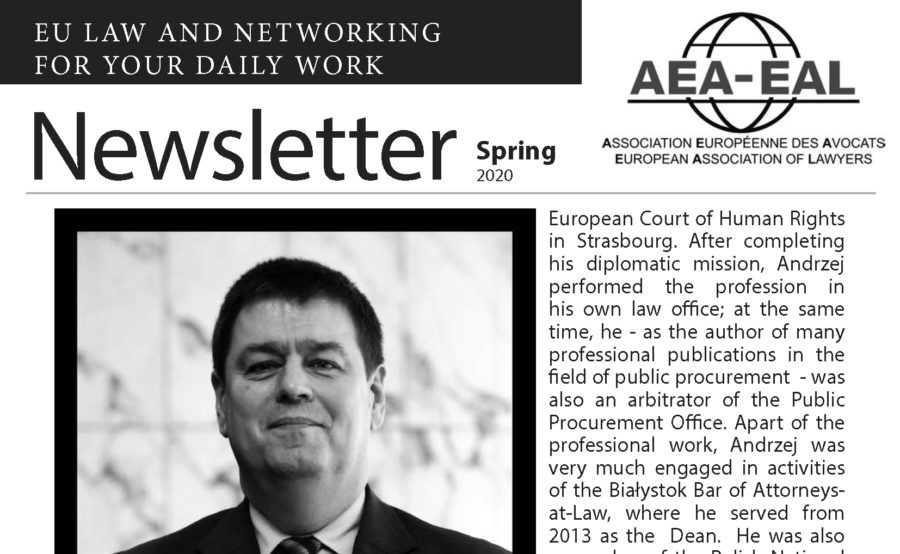


 The European Commission issued a summary of actions in justice area on e-Justice Portal. It provides an overview of the measures taken within the European Union in relation to the COVID-19 pandemic, which affects judiciary, national authorities and legal practitioners, businesses and citizens. It is divided in three parts: civil law, criminal law and use of the digital tools by judiciary.
The European Commission issued a summary of actions in justice area on e-Justice Portal. It provides an overview of the measures taken within the European Union in relation to the COVID-19 pandemic, which affects judiciary, national authorities and legal practitioners, businesses and citizens. It is divided in three parts: civil law, criminal law and use of the digital tools by judiciary.  The Court of Justice of the European Union introduced several measures including suspension of hearings at least till May 25th. The Court encourages to use e-Curia tool. Application forms for opening accounts sent to the registry by email shall be accepted, exceptionally, on condition that they are accompanied by the necessary supporting documents, which are duly signed and scanned.
The Court of Justice of the European Union introduced several measures including suspension of hearings at least till May 25th. The Court encourages to use e-Curia tool. Application forms for opening accounts sent to the registry by email shall be accepted, exceptionally, on condition that they are accompanied by the necessary supporting documents, which are duly signed and scanned.  The Council of Europe – in the framework of its Commission for the Efficiency of Justice (CEPEJ) prepared a compilation of information from Member States on legal measures applied to respond Covid-19 crisis.
The Council of Europe – in the framework of its Commission for the Efficiency of Justice (CEPEJ) prepared a compilation of information from Member States on legal measures applied to respond Covid-19 crisis.  The European Court of Human Rights extended exceptional measures till June 15, including use of written procedure only and suspension of sending communication to the parties with exception of urgent cases.
The European Court of Human Rights extended exceptional measures till June 15, including use of written procedure only and suspension of sending communication to the parties with exception of urgent cases.  The United Nations UN Secretary General Antonio Guterres has issued a policy letter to G-20 member states on actions that should be undertaken against the Covid-19. He issued also seven remarks to the Security Council as well as a briefing to all member states on measures undertaken by the UN Secretariat including suspension of most travels and meetings.
The United Nations UN Secretary General Antonio Guterres has issued a policy letter to G-20 member states on actions that should be undertaken against the Covid-19. He issued also seven remarks to the Security Council as well as a briefing to all member states on measures undertaken by the UN Secretariat including suspension of most travels and meetings.  Diego García-Sayán UN Special Rapporteur on the independence of judges and lawyers outlined urgent steps to ensure justice systems are not paralysed by COVID-19. He issued seven key guidelines:
Diego García-Sayán UN Special Rapporteur on the independence of judges and lawyers outlined urgent steps to ensure justice systems are not paralysed by COVID-19. He issued seven key guidelines: Letter from the office of our member Florence Achache (France) and letter from our member Christian Colombier (Lyon Bar)
Letter from the office of our member Florence Achache (France) and letter from our member Christian Colombier (Lyon Bar)  Information published by the German Federal Bar Council (Germany)
Information published by the German Federal Bar Council (Germany) Letter from the Law Society of Hong Kong
Letter from the Law Society of Hong Kong Letter from Paolo Sguotti, member of the AEA-EAL Board (Padova – Italy)
Letter from Paolo Sguotti, member of the AEA-EAL Board (Padova – Italy) Letter from Leila Ramazanova (Almaty – Kazakhstan)
Letter from Leila Ramazanova (Almaty – Kazakhstan) Information from Joanna Wisła – Płonka, National Bar of Attorneys-at-law (Poland)
Information from Joanna Wisła – Płonka, National Bar of Attorneys-at-law (Poland) Letter from Kaliningrad (Russia)
Letter from Kaliningrad (Russia) Letter from Juan Nunez, AEA-EAL Past President (Barcelona – Catalonia – Spain)
Letter from Juan Nunez, AEA-EAL Past President (Barcelona – Catalonia – Spain) Information sent by Philipp Zurkinden, AEA-EAL Past President (Switzerland)
Information sent by Philipp Zurkinden, AEA-EAL Past President (Switzerland) Information published by the Ukraine National Bar Association (Ukraine)
Information published by the Ukraine National Bar Association (Ukraine) Information published by the Law Society (with updates) (England & Wales, UK)
Information published by the Law Society (with updates) (England & Wales, UK)